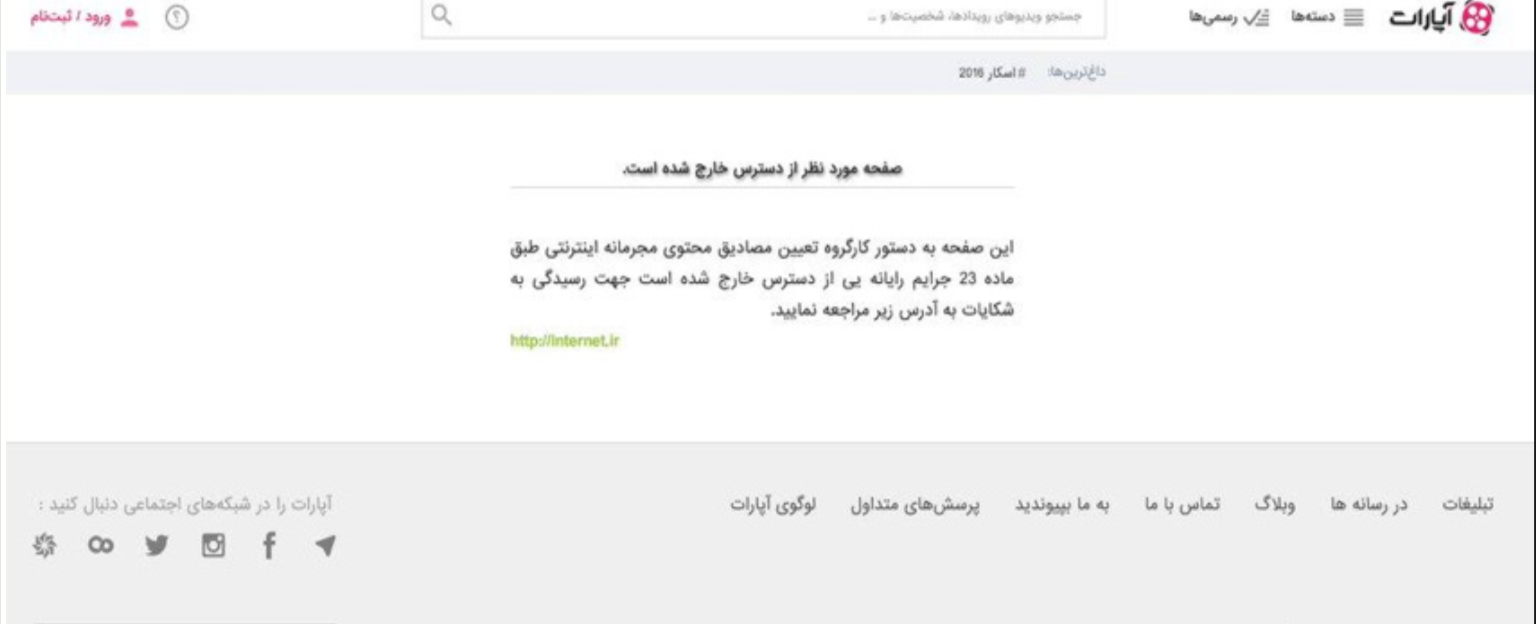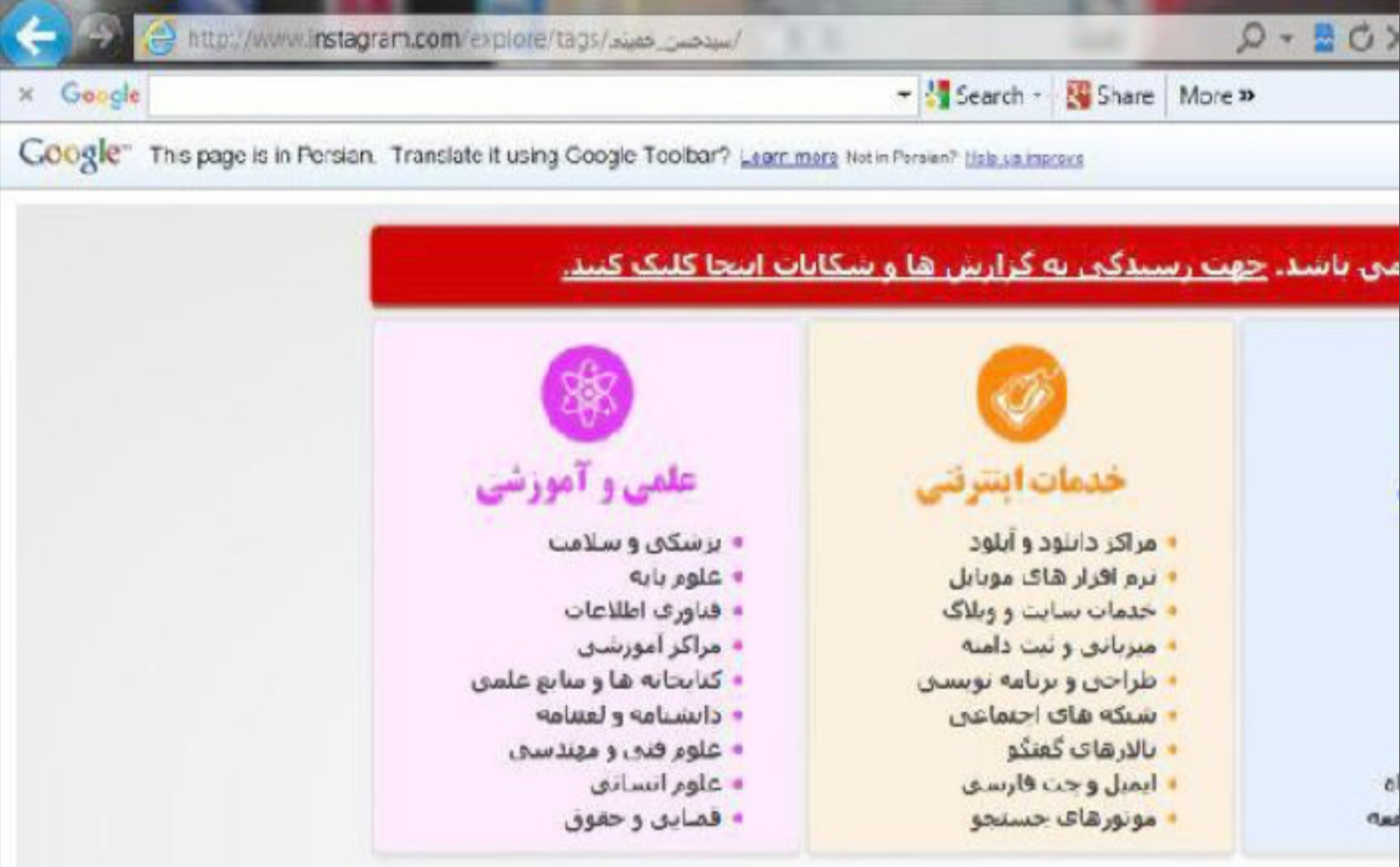Implications
Under Rouhani, internet filtering in Iran has not only continued, it has been strengthened, maintaining the long-term trend toward ever-increasing censorship
and reduced access to secure personal communications. Although users can use mechanisms such as a proxy or VPN to circumvent the filters, Iranians’ right to access online information is being violated. Indeed, under Rouhani, the most complex and costly national project for internet censorship and control—the NIN—has significantly advanced.

Image of Mohammad Khatami’s deleted video from Aparat website, considered a replacement for YouTube in Iran.
The national search engines mean that state filtering has changed from individualized blocking to systematized filtering and re-direction to state-approved (and often falsified) content. The trend toward blocking services and applications that provide encryption by default is of particular concern. These tools and services provide a lifeline for Iranians trying to maintain internet access and privacy. The inability to access these tools from Iranian stores, or buy them internationally due to constraints on international financial transactions with Iranians, has meant Iranians are deprived of tools vital to their internet access and security.

Image of search results for the hashtag of Seyed Hassan Khomeini on Instagram showing it to be blocked.

